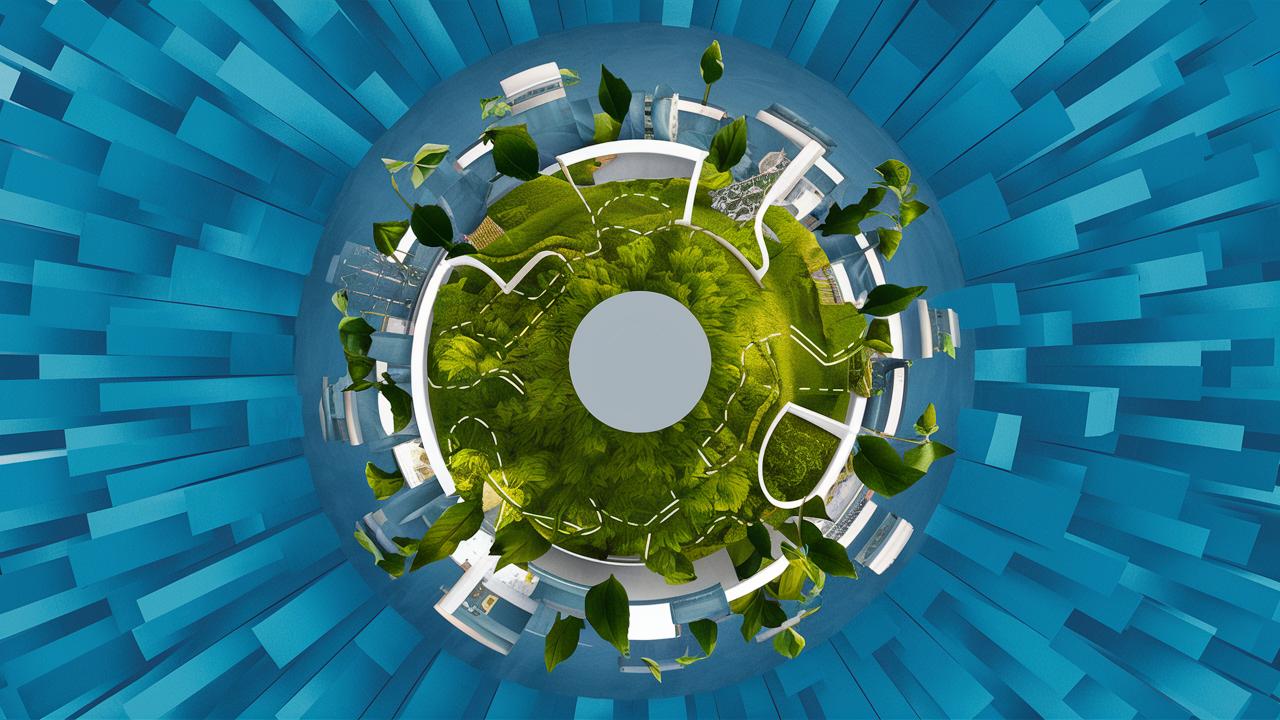The Role of Sustainable Tech in the Future of Development
How dose enduring technology contribute to environmental conservation?
In a world of rapid technological progress, teh intersection between technology and sustainability holds notable potential for shaping a better future. As climate change continues to pose a threat to our global community, the adoption of sustainable technology is increasingly seen as critical in driving future advancement. This article explores the role of sustainable tech, detailing its impact on economies, the habitat, and societal growth, while providing insights into innovative solutions leading the way.
The Importance of Sustainable Technology in Modern development
Sustainable technology refers to technological advancements aimed at meeting current needs without compromising the ability of future generations to meet their own needs. It emphasizes the efficient use of resources, reduction of emissions, and minimizing environmental impact. These technologies are essential for achieving the delicate balance between development and environmental sustainability.
Why Sustainability Matters
With climate change posing an existential threat, sustainable practices have moved beyond a mere trend to a necessity. The global population is growing, and with it, the demand for resources. To ensure a livable planet for future generations, it is crucial to innovate and implement technologies that reduce environmental footprints while fostering economic and social growth.
Economic Benefits of Sustainable Tech
- Cost Savings: Businesses adopting sustainable technologies often experience reduced operational costs due to more efficient energy consumption and waste management.
- Job Creation: The renewable energy sector, in particular, is a significant job creator, offering employment across various skill levels.
- Investment Opportunities: Increasingly, investors are looking at the sustainability credentials of companies. Technologies that promise long-term viability and environmental responsibility are attracting more funding.
Key Areas of Sustainable Technology
Renewable Energy
Renewable energy remains one of the cornerstones of sustainable development. Sources such as solar, wind, and hydroelectric power are vital in reducing the global reliance on fossil fuels.
- Advancements in Solar Energy: With the plummeting costs of solar panels and their increasing efficiency, solar energy is becoming more accessible for both residential and commercial use.
- Wind Power Innovations: Modern turbines are more efficient and less intrusive, making wind a viable option even in densely populated areas.
- Hydroelectric Power: While traditional methods have environmental concerns, newer technologies are minimizing ecological impacts and improving efficiency.
Smart Grids
Smart grids revolutionize the way electricity is distributed and consumed. They enhance efficiency, reduce energy waste, and integrate renewable energy sources seamlessly into the power supply.
Energy-Efficient Technologies
From smart thermostats to LED lighting,energy-efficient technologies are pivotal in reducing energy consumption in homes and businesses. Innovations in building materials and design are also contributing to lower heating and cooling demands.
Eco-Friendly Transportation
Transportation is a significant contributor to global emissions. Sustainable tech in this space includes electric vehicles, public transport innovations, and even alternative fuel sources such as hydrogen.
Environmental Impacts of Sustainable Technology
Reduction in Carbon Footprint
One of the primary goals of sustainable tech is to cut down on greenhouse gas emissions. Renewable energy sources, energy-efficient appliances, and eco-friendly transportation are crucial in achieving this goal.
Preservation of Natural Resources
Sustainable technologies are designed to make optimal use of natural resources, conserving what remains and lessening the adverse effects of resource extraction.
Waste Management and Recycling
Innovations in waste management are making it easier to recycle, reuse, and reduce waste overall. These advancements are crucial in addressing global waste issues and fostering a circular economy.
Sustainable Tech and its Social Implications
Enhancing Quality of Life
By providing cleaner air, reducing pollutants, and enabling more sustainable living conditions, sustainable technologies hugely contribute to a healthier living environment.
Empowering Communities
Access to renewable energy solutions can empower remote and underserved communities by providing reliable energy sources, enabling education, and fostering local businesses.
Inclusive Growth
Sustainable development, powered by innovative technologies, emphasizes the importance of inclusive growth. It ensures that technological benefits reach diverse populations, helping reduce inequality.
Challenges and Future directions
Integration and Scalability
One of the basic challenges lies in integrating sustainable technologies into existing infrastructures and scaling them up to meet global needs. Continued innovation and government policies are pivotal in overcoming these hurdles.
Policy and Regulation
Effective regulation is needed to encourage adoption and development of sustainable technologies. Policymakers must create incentives and frameworks facilitating transitions to sustainable models.
Public Awareness and Education
For sustainable technologies to be widely embraced, public awareness and education are essential. This involves informing citizens about benefits and encouraging actionable changes in lifestyle.
Conclusion
The role of sustainable technology in the future of development cannot be overstated. From renewable energy to smart grids, eco-friendly transportation to advanced waste management systems, these technologies promise a future where economic growth does not come at the expense of the planet.Still, the journey toward a sustainable future will require concerted efforts from individuals, businesses, and governments alike. It is a future that must be built with informed decisions,innovative solutions,and a steadfast commitment to environmental responsibility for a truly sustainable and equitable world.








